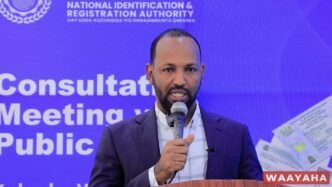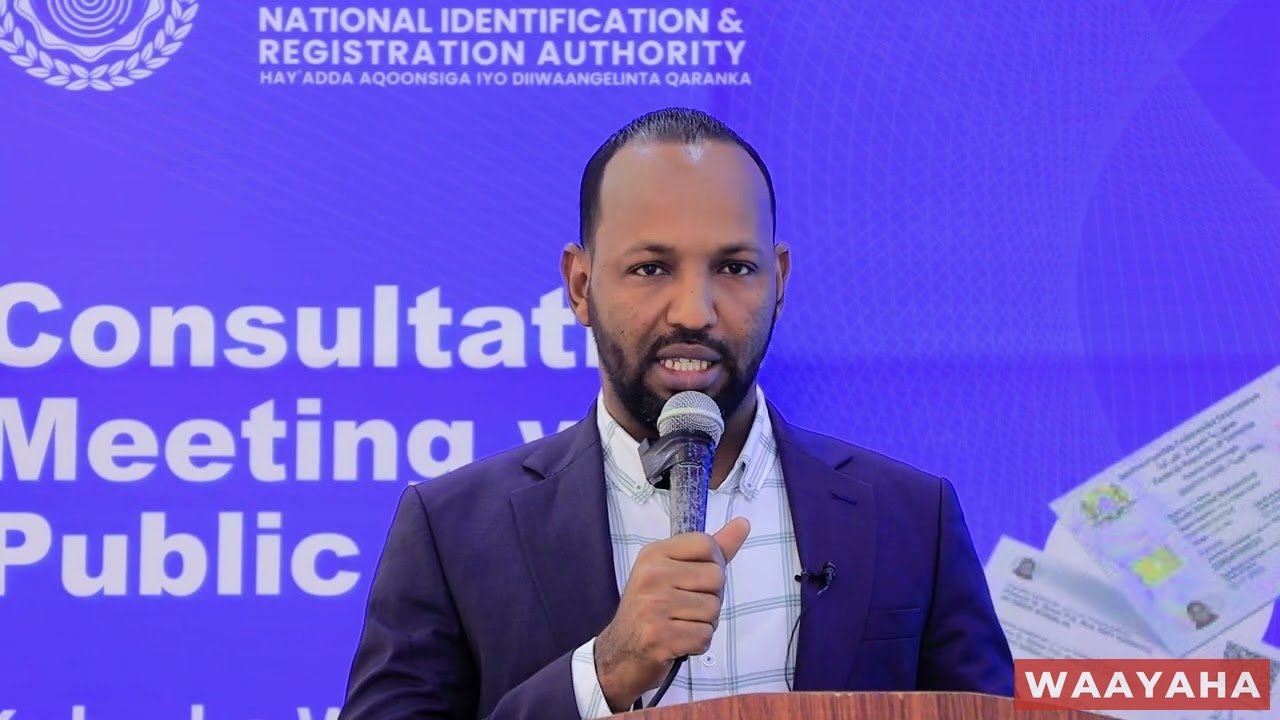In a significant move to enhance public service delivery, Somali authorities have initiated efforts to streamline the issuance of national identification cards and integrate them with notary services across the country. The collaboration aims to address long-standing challenges and ensure that citizens have seamless access to these crucial services.
The initiative was spearheaded by the National Identity Agency (NISA), which convened a meeting at the Ministry of Justice with representatives from the Benadir Regional Court, notary public officials, and other stakeholders. The primary focus was to harmonize the provision of services to the public and align the national ID card system with notary services.
Abdiweli Timacade, the Director-General of NISA, opened the meeting by emphasizing the agency’s unwavering commitment to serving the public under all circumstances. He pledged to provide national ID cards free of charge to citizens who cannot afford the service fees, ensuring that no one is left behind.
“Today, we are ready to serve the people who require our assistance. If you say you can serve 100 people per day, I promise to provide you with the necessary resources and equipment to ensure that 100 individuals receive their national ID cards daily,” Timacade stated.
Recognizing the financial constraints faced by some citizens, Timacade announced a waiver of the $5 fee typically charged for the national ID card service. He stressed the importance of not denying services to anyone due to their inability to pay, underscoring the government’s commitment to facilitating access for all citizens.
Mukhyaddin Dalmar, the Deputy Attorney General of the Federal Government of Somalia, acknowledged the existence of numerous challenges in providing services to citizens. He highlighted the national ID card as a solution to the identification issues faced by the public, stating that it serves as both a primary and secondary form of identification.
Dalmar emphasized the significance of the national ID card, noting that it allows individuals to access services and move freely throughout the country, including in remote areas and government facilities. He urged NISA to continue expanding and improving the service, ensuring that every citizen has the opportunity to obtain this vital document.
Yusuf Degtay, the Deputy Director of the National Notary Public Office, welcomed the integration of notary services with the national ID card system. He acknowledged the multiple forms of identification currently in use, such as passports, birth certificates, and residency permits, which can sometimes lead to confusion and potential fraud.
“There are often situations where birth certificates and residency permits are obtained through improper channels, making it difficult to verify their authenticity,” Degtay explained. “Having a centralized and verifiable national ID system will significantly mitigate these issues and protect the rights of citizens.”
The meeting also featured presentations and discussions on various research studies and strategies to harmonize the national ID card system with the services provided by notary public offices. The Deputy Director-General of NISA addressed questions and concerns raised by notary public officials, offering insights and recommendations for resolving potential challenges.
As Somalia continues to strengthen its governance and public service infrastructure, initiatives like this collaboration between NISA and the notary public sector are crucial steps towards enhancing efficiency, transparency, and accessibility for all citizens. By streamlining identity management processes, the country aims to foster a more inclusive and equitable society, where every individual can access essential services without barriers.













